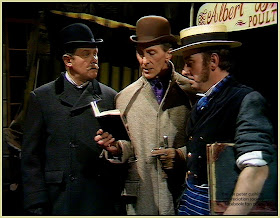Screening as we post! This is the first opportunity to see the new
cleaned up print of Hammer Films 'THE MUMMY' happening now at the
British Museum's Monster Weekend, part of the BFI 'Gothic' season. THE MUMMY stars Peter Cushing, Christopher Lee and Yvonne Furneax. Directed by Terence Fisher.
More pics to come...




















































